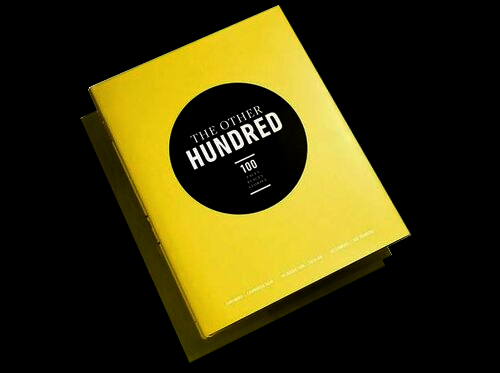About The Other Hundred
The Other Hundred is a worldwide initiative that provides a better understanding of the people who make up our world and the lives they lead.
Through a series of 100 photo-stories drawn from photographers across the world, each edition of The Other Hundred moves beyond stereotypes to challenge conventional wisdom and introduce readers to the vast majority of people, ideas, places and cultures that are overlooked by most major media.
The Other Hundred is a not-for-profit initiative of the Global Institute For Tomorrow.
Past Editions
Inaugural Edition
The Inaugural Edition of The Other Hundred was meant as a counterpoint to the Forbes 100, Bloomberg billionaires list and the countless other rich lists that are constantly making headlines. The aim was to highlight the stories of people around the world who are not rich but who deserve to be celebrated.
Its 100 photo-stories move beyond the stereotypes and clichés that fill so much of the world’s media to explore the lives of people whose aspirations and achievements are at least as noteworthy as any member of the world’s richest 1,000.
Selected from 11,000 images shot in 158 countries and submitted by nearly 1,500 photographers, The Other Hundred celebrates those who will never find themselves on the world’s rich lists or celebrity websites.
The first edition of The Other Hundred has been featured in over 110 media outlets, including CNN, Bloomberg, NHK, The Guardian, Al-Jazeera, Forbes and others. Photographs from the winning 100 stories were exhibited at both Pacific Place and Asia Society in Hong Kong with additional events to follow in New York, Berlin, Beijing, Singapore, and the UAE in 2014.
The book contains thought provoking essays from some of the best writers from different parts of the world: award winning author and thinker Pankaj Mishra, renowned Chinese poet Bei Dao, award winning journalist Amy Goodman and acclaimed authors Janice Galloway, Carlos Gamerro and Chika Unigwe.
Entrepreneurs Edition
The second edition of The Other Hundred focuses on the world's everyday Entrepreneurs. It captures the reality that small and medium-sized businesses, rather than tech billionaires or elite MBAs, contribute the majority of the world's jobs, including half of all jobs in Africa and two-thirds in Asia.
The Other Hundred Entrepreneurs are skyscraper painters in India, tech workers turned food hawkers in China, salt farmers in Australia, the owner of a rural internet café in Brazil and many more.
The book offers an alternative to the view that most successful entrepreneurs were trained at elite business schools. Here are people who have never written a formal business plan, hired an investment bank, planned an exit strategy or dreamt of a stock market floatation. Some work for themselves, others employ a few people, still others a few hundred.
The book's 100 stories were chosen from a pool of 10,000 images shot in nearly 150 countries. Also included are half a dozen essays from acclaimed writers the world over - Tash Aw, Ian Johnson, Robyn Bargh, Eliane Brum, David Goldblatt, Tolu Ogunlesi, Yasmine El Rashidi and Huang Wenhai.
The Other Hundred Entrepreneurs has been featured in numberous media outlets including the South China Morning Post, Forbes.com, Bloomberg and EurasiaNet.
The book is published by Oneworld Publications in London and is available from March 2015 in bookstores worldwide and on Amazon.
Educators Edition
The third edition, The Other Hundred Educators, questions the conventional understanding of education and presents the uncelebrated educators of our times. These are the people who have pioneered unique ways of teaching and transferring knowledge and, by doing so, have changed the lives of many. Their methods are unorthodox and their pedagogy is rarely recognised. Their contribution to pushing boundaries of human knowledge is often times more profound and life-altering than any formal institution and yet they will never make the top education ranks and lists.
At its heart, our message is that the world of education is far more diverse and a lot more interesting than what gets portrayed on nightly news or on the cover of business magazines and daily newspapers. The most valuable educators have a lot more to offer than entry to elite schools that strive to be on top of dubious rankings.




